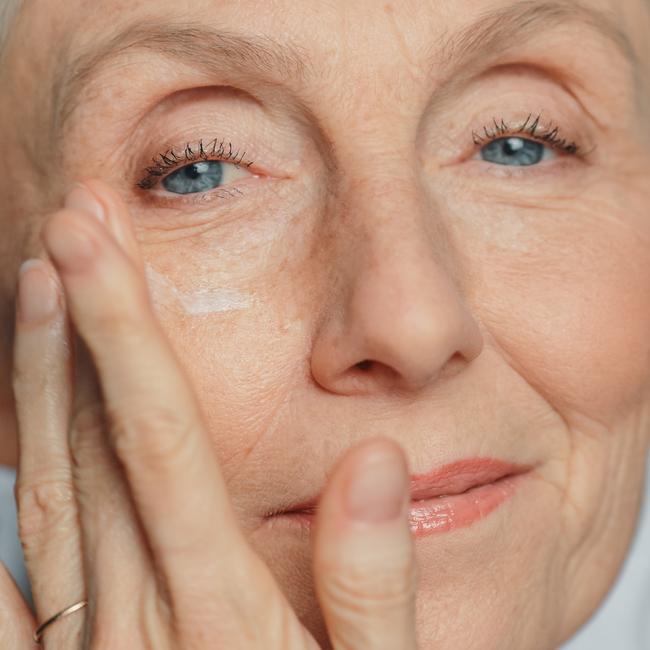Supplements claim to defy ageing and improve brain health – do they work?
We ask the health experts to rate the latest ‘fashionable’ pills and powders – supplements – for health and fitness. Here are their assessments.

Should you take the latest ‘fashionable’ pills and powders for health and fitness. We ask the health experts to rate them.
CREATINE
The promise: Improved muscle health and fitness
Creatine’s popularity among gym-goers is at an all-time high. A compound produced naturally in the body and found in red meat and seafood, it plays an important role in regeneration of adenosine triphosphate, the organic compound that provides cells with the energy they need to function. “We store creatine in our muscles and the more of it we have, up to a point, the more on-demand energy we have when exercising,” nutritionist Rob Hobson says. “There’s evidence to show it enhances muscle growth and recovery, particularly in activities involving power and speed such as weights, football, tennis and rugby.”

Should you take it?
“Creatine is one of the most widely studied of all sports and fitness supplements,” Hobson says. “The data shows up to 30g creatine a day for five years has been proven to be safe.” It can cause some water retention and weight gain, he adds, so it might not be suitable for those exercising to lose weight.
CORDYCEPS EXTRACT
The promise: immunity boosting and anti-ageing
Researchers reporting in the journal Food Chemistry described mushrooms of all varieties as potent anti-ageing foods because of their unusually high content of two antioxidants – ergothioneine and glutathione – that have been shown to preserve cellular health. Extract of the cordyceps fungus, which has high amounts of both, has been linked by a paper in Frontiers in Pharmacology to everything from a stronger immune system to disease prevention, while a University of North Carolina study demonstrated that it improves stamina in athletes.
Should you take it?
“I do recommend cordyceps mushroom extract for longevity and general health for my clients,” says nutrition therapist Gabriela Peacock, author of 2 Weeks to a Younger You. “But mushrooms in general contain valuable nutrients that help to prevent biological ageing.”
ASTAXANTHIN
The promise: wrinkle reduction
A 2021 review in the journal Pharmacological Research suggested this potent antioxidant, naturally found in salmon, trout and crayfish, might be helpful in preventing heart disease and some forms of cancer. It’s particularly popular because of its reputation for DNA repair and skin health, with researchers from the University of Essex and James Cook University Hospital, Middlesbrough among those contributing to a 2020 paper that suggested there is “some clinical data” to support taking 3mg to 6mg a day, particularly for its benefits on sun-aged skin.

Should you take it?
“There is strong research supporting its antioxidant and anti-inflammatory properties, which are very important for general anti-ageing,” Peacock says. “But there is also fairly good evidence that shows a 6mg dose taken daily for 16 weeks by a group of women aged 35 to 60 reduced the appearance of fine lines and wrinkles.”
LION’S MANE
The promise: boosts brain health and cognition
The yamabushiitake, or lion’s mane mushroom, which grows on old tree trunks, contains the compounds hericenones and erinacines, which, according to a study in the journal Antioxidants, might help enhance the growth of brain cells. For one trial published in the journal Phytotherapy Research, adults aged 50-80 diagnosed with mild cognitive impairment took four supplements containing 250mg of powdered lion’s mane three times daily or a placebo for four months. Cognitive function test scores improved in the lion’s mane group over the placebo group, but a month after they stopped taking it, scores dropped again.
Should you take it?
“Most … stronger evidence centres on its effects for brain health and cognition, with some animal studies showing it might reduce anxiety,” nutritionist Sophie Bertrand says. “The research looks promising but more is needed.”
ASHWAGANDHA
The promise: lowers stress levels
Ashwagandha is among the most-searched-for supplements. It is said to reduce stress, possibly by lowering levels of hormones such as cortisol. It has also been associated with boosting energy levels, concentration and libido. A review of 12 clinical trials involving 1002 people aged 25-48, published in the Phytotherapy Research journal, suggested it “significantly reduced anxiety” when taking 300-600mg daily.

Should you take it?
“Purported benefits are mostly anecdotal as the science is lacking,” Bertrand says. “Check with a medical professional before taking it as it may not be safe for people with certain health conditions.”
BERBERINE
The promise: aids weight loss
Billed as nature’s alternative to weight-loss drug Ozempic, berberine is said to have positive metabolic effects on the body. Some animal studies, including one published in the International Journal of Molecular Science, have shown it can help to control blood sugar levels.

Should you take it?
“Rigorous clinical trials on humans are lacking, especially when it comes to weight loss,” says Alex Ruani, researcher in nutrition science at University College London and chief science educator at the Health Sciences Academy. “Even relatively small doses of it can cause gastrointestinal problems such as diarrhoea, constipation and stomach pain.”
MACA ROOT
The promise: mood enhancement
A cruciferous root vegetable related to turnips, maca is traditionally powdered and taken as a tea. In animal studies, including one paper published in the Journal of Food Science and Technology, taking the powdered root was shown to lower production of the stress hormone cortisol.
Should you take it?
“Human data confirming these benefits is very limited,” Bertrand says. “It is certainly not proven to treat severe anxiety symptoms or other health conditions.”
PLANT-BASED COLLAGEN
The promise: contributes to healthy joints and tendons
The collagen in supplements is usually from animal sources, such as beef or fish, which is combined with vitamin C for better absorption, and has been shown in university studies to improve tendon and muscular health, reducing injury risk in athletes. Of course, regular collagen is not vegan-friendly. Enter plant-based “collagen”, typically produced from genetically modified yeast and bacteria, and said to behave in the same way, although experts are sceptical.

Should you take it?
“Collagen comes from animal connective tissue and any studies supporting the benefits of collagen supplementation cannot be transferred to so-called plant-based varieties, which are a contradictory term,” Hobson says.
SEA MOSS
The promise: improved gut and thyroid health
This iodine-rich dried slimy sea vegetable is hailed for its gut-healing, energy-boosting properties. A team from Canada found it to have potent probiotic effects in animals, boosting the status of their microbiome and resulting in “improvement of gut health” and immunity. A review in the journal Marine Drugs suggested it might have potential brain-protective effects.
Should you take it?
“Most forms of seaweed are rich in iodine, important for thyroid health, and in fibre, for gut health,” Hobson says. “Sea moss is fashionable but nutritionally no better.”
The Times





To join the conversation, please log in. Don't have an account? Register
Join the conversation, you are commenting as Logout